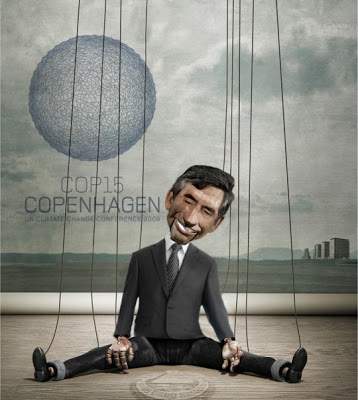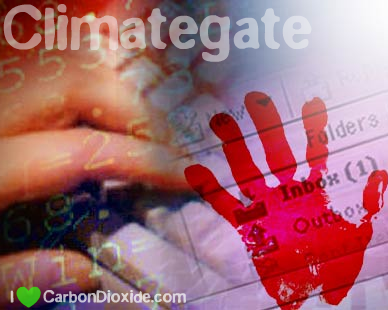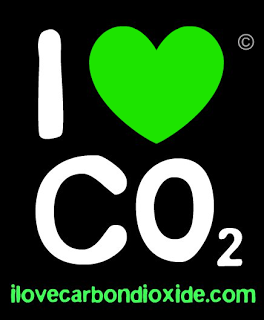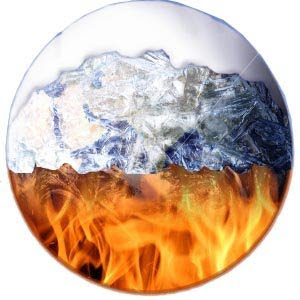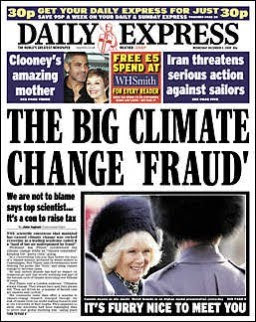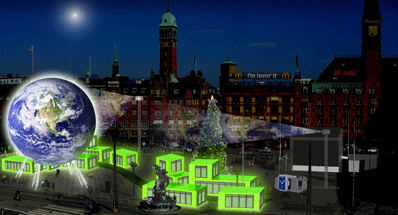 By Terry McCrann
By Terry McCrann
No Hopenchangen in Nopenhagen
An illuminated globe with the writing ‘Hopenhagen’ stands in Copenhagen’s city center.
COPENHAGEN is going to be two weeks of insane hysteria. Just like the Olympics, but with lots of snow, courtesy of Al Gore and his ‘Gore Effect.’
There’ll be another major difference. This will be like the Olympics with only one country represented. All 40,000-plus attendees will be batting for the same side, so to speak.
We are going to be deluged with wall-to-wall coverage of hysterical end-of-the-world claims unless we hand over billions of dollars a year, every year, and close down our economy.
This really is the ultimate gift that keeps on taking. Give us the money to fight climate change; and as the climate changes every year, the funding has to be permanent.
Gets hotter? Climate change. Gets colder? Climate change. Stays pretty much the same? Now, that’s the really insidious climate change!
We’ve already had something of a minor deluge in the Antipodean paper of record for the First Church of Climate Apocalypse and Purportedly Pissed-Off Gaia, the Melbourne Age. [Climategate]
A series of them last week exactly and beautifully captured the mindless pap that passes for climate ‘science’ and the proselytising of the climate hysterics and true or ‘truther’ believers.
Beautifully, because the writers wouldn’t have had any awareness of the mush they were delivering.
Arguably our greatest national hysteric, certainly at least an archbishop in the First Church, Tim Flannery, angrily denied that he’d become a ‘climate sceptic.’
Such a claim was “outrageous.” He laid the blame for the outrage at the feet of our (the Herald Sun’s) Andrew Bolt.
How did Bolt “twist” the truth? Simply by quoting what Flannery had said on the ABC’s Lateline.
And I quote again: “So when the computer modelling and the real world data disagree you’ve got a very interesting problem … Sure for the last 10 years we’ve gone through a slight cooling trend.”
That was it. Bolt pretty much just recorded Flannery’s concession on temperature. He didn’t accuse him of being a sceptic. He wouldn’t have been that generous.
I’m not. Flannery revealed himself as a mathematical dunce. And I’m going to do the dastardly trick of quoting him directly again from his Age article.
The “overall increase (of the earth’s temperature) since the industrial revolution of 25 per cent – from 15 to 20 degrees … “
Actually Tim, that’s a 33.3 per cent increase. And these are the sort of people who ask us to take as gospel – that word is used advisedly – the accuracy of the most complex mathematical calculations.
Mathematical ineptitude aside, the utterly unqualified statement of the temperature increase self-announces Flannery as a fool or a fraud or most probably both.
So the world’s temperature around the time of the industrial revolution was 15 degrees? Not 14.5 or 15.5 or even 14-16? But 15, exactly and unqualified?
Presumably the global temperature came from readings from those 17th century satellites, with the data then fed through the computers at the Climate Research Unit at East Anglia university.
With exactly the same integrity of all the other data from the CRU, which is the single most important research driver of the Copenhagen dynamic.
Oh, and by the way, it’s not just the 15 degrees three hundred or so years ago that’s gospel certain for Flannery. But the 20 degrees – crucially, not now when we might be able to get close to a global measure of temperature, but at some unstated time in the future.
Then we had a strange piece from a character named Stephen Lewandowsky, described as the ‘Australian professorial fellow in the school of psychology at the UWA.’
A little bit of self-analysis wouldn’t have gone astray.
The piece consisted of simple denial of facts. The Arctic is melting faster than predicted. No it isn’t – it was predicted to have already melted right away.
Temperature increases over the past decade had conformed to predictions. No they haven’t – see inconvenient Flannery quote.
Ludicrous claims. The genocide in Darfur was “a climate war.”
A series of questions to which the answer is no, your premise is exactly wrong. And a defence of the thuggish behaviour of the climate believer-insiders at the CRU as an exercise in “quality control rather than censorship.”
In the process very neatly demonstrating why the scandal at CRU should be a matter of concern for all academics. As it brings all peer review across every discipline into serious disrepute.
Peer review? Oh you mean peer conspire.
Beautifully captured when someone like this character can defend it even after the disclosure of the sordid behaviour.
It’s going to be both a delicious and depressing fortnight as we get inundated with sludge and mush from Copenhagen, mediated through much of the lamestream media to borrow Bernie Goldberg’s apt description.
Via Email to ILoveCarbonDioxide.com, sourced from the HeraldSun
